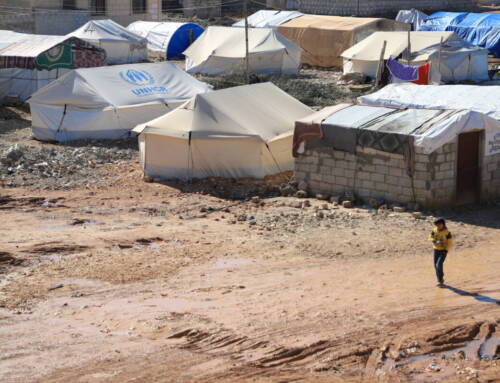Jabhat a-Nusra issues demands using UN peacekeepers as leverage
NEIGHBORS: Jabhat a-Nusra’s capture of the Quneitra border crossing between […]
2 September 2014
NEIGHBORS: Jabhat a-Nusra’s capture of the Quneitra border crossing between Syria and Israel last Wednesday led to an unlikely pairing: flags from the Free Syrian Army, which allied with Nusra for the battle, and Israel, side by side.
In response to the escalated violence, Israel deployed soldiers from its Northern Command army in armored cars to the border Tuesday. On Monday, Israel declared Quneitra a closed military zone after mortar shells landed in its territory on the Golan Heights.
The Syrian government, meanwhile, has launched an aggressive campaign to regain control of the border crossing using a combination of heavy bombing and artillery fire to pressure the rebels.
“The [Syrian] army and forces targeted groups of terrorists and their bases in Quneitra and the surrounding area, killing a number of them and injuring others,” reported official agency SANA on Tuesday.
When Nusra forces took the Quneitra border last week, they also kidnapped 45 Fiji UN peacekeepers stationed around the demilitarized zone. Seventy Filipino UN peacekeepers were also trapped by Nusra, but were able to escape with the help of Irish-national UN soldiers and regime bombings of the area.
Nusra has three demands for the UN soldiers, Fiji Army Chief Mosese Tikoitoga said on Tuesday: The removal of Nusra’s name from the UN terrorist list, the sending of humanitarian aid to the towns in Ghouta outside Damascus, and compensation for Nusra fighters killed in the Quneitra skirmishes.
“We’ve been assured by the UN Headquarters that the UN will bring all its resources to bear to ensure the safe return of our soldiers,” Tikoitoga said in the press conference.
Meanwhile, the Irish Defense Minister Simon Coveney, whose forces make up part of the UN team in Quneitra, called for a review of the UN role in the area.
“The circumstances have dramatically changed on the ground and we need the UN to adapt to that new reality, or else concede that this mission cannot operate.”
-September 2, 2014
Photo courtesy of @Khaled_qahtan.
For more from Syria Direct, like us on Facebook or follow us on Twitter.








